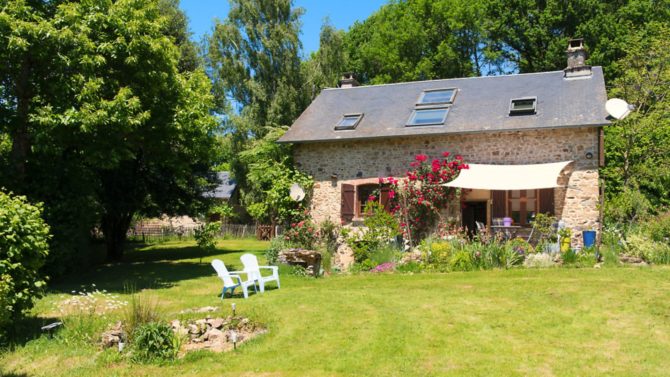French property: Don’t be an April fool!


Avoid the pitfalls of buying a property in France by following these simple rules

Buying a property is one of the biggest decisions you’ll make in life, and one of the largest financial outlays. And when you’re buying a holiday or permanent home across the Channel in France, it can be even more daunting. But as long as you plan well and seek appropriate advice, you should find the road to your own French property pothole-free and smoothly surfaced. Here are a few pointers.
What, where, why
It may sound obvious, but getting the location and property right is crucial to your future happiness.
Let’s start with location. Maybe you’re buying somewhere you’ve fallen in love with on holiday and think you know really well. But have you visited out of the peak season? In deepest midwinter, you might find your favourite restaurants shut down and life is much quieter than in the summer months when local festivals and tourist activities are in full flow.
Consider carefully what you want from an area. If you’re moving full-time, it may be quite different to the things you look for in a holiday home. Local amenities like shops, doctors and schools may be more important than a beach or restaurants. Maybe you’ll need work opportunities within easy driving distance, or good wifi if you’ll be working from home.

Involve the whole family in the decision too. Will the location suit everyone or might some members of the family want somewhere more lively/rural/cultural/sunny, for example? On that last point, don’t forget climate, especially if you’ve only visited an area in summer. You might be surprised how cold it gets in winter. Likewise, a full summer of high temperatures is very different to a week or two – one person’s dream is someone else’s nightmare!
What kind of property are you looking for? An older place with lots of character? Maybe even a renovation project. Or a low-maintenance new-build? Make sure you understand exactly what’s involved – are you really up for looking after a historic property, or keeping a large garden and land under control? Do you really need all those bedrooms? Is a pool a novelty that will wear off when you’re cleaning out the filters and topping up the chemicals?
Challenge what you think you want and be open to other possibilities too, especially if you’re determined to buy in a specific area with a limited property market.
Future proof
Consider how things might change in the future too. If you have young kids, for example, you may dream of giving them a Swallows and Amazons experience. But in a few short years they’ll be teenagers and you’ll probably be taxi-ing them to and from the nearest town or their friends’ houses.

Perhaps you’re retiring to France and looking forward to a life full of adventure. But don’t forget to factor in times when you might not be as active and won’t be as keen on steep stairs, for instance, or driving on country roads to pick up your daily baguette.
When in Rome
You may have bought several properties in the UK but it’s important to understand how the French system works to avoid any unforeseen problems during the buying process or further down the line.
The main difference is that the deal is sealed much earlier – there’s no pulling out of the purchase if your mind or circumstances change a month or two later. As a brief overview, once your offer on a property has been accepted, both parties (vendor/s and buyer/s) sign a contract, usually a ‘compromis de vente’. The buyer has the benefit of a 10-day cooling-off period, after which the contract is legally binding on both parties (subject to any clauses added into the ‘compromis’).
At the first contract stage the buyer pays a deposit, usually 10% of the sale price – this should be paid to the notaire or into the agent’s escrow account, never directly to the vendor. The completion ‘acte de vente’ is signed around three months later, when the final sum is also paid.

Never sign any contract you don’t fully understand, whether from a language or legal point of view. If in doubt, ask, or seek the advice of a translator or legal professional.
It’s important to be aware of how French inheritance works, and how you pass on your property in the future. France has a protected heirs system, whereby certain heirs automatically inherit. Although since 2015, French law has been governed by the EU legislation Brussels IV, allowing you to nominate the law of your nationality to apply to your French property, it is still worth seeing advice on the tax and succession consequences.
French estate agencies tend to operate differently to those in the UK. They’re unlikely to list a property’s address, and may only tell you its general area. This is partly to prevent you sidestepping their agency fees by going directly to the owner or to another agent.
Don’t miss
This is what you can buy in France for €150,000
Gorgeous French properties near a château
Be assured that the estate agency profession in France is strictly regulated. Make sure you choose a fully qualified and insured agent; if their ‘carte professionnelle’ is not displayed at their office, you can ask to see it.
Every French property transaction is overseen by a notaire; you can use the vendor’s notaire or appoint your own (in which case they share the fees). Although a notaire is a lot like a lawyer and works within the French legal system, their role is to ensure the relevant taxes are collected for the government as well as to carry out the various checks and conveyancing.
It may also be advisable to appoint a specialist solicitor, who understands all the nuances of a French property purchase by a British buyer, including any inheritance and tax implications.
In France, building surveys are rare. While vendors are obliged to provide a series of diagnostic reports (asbestos, termites, energy efficiency etc), these are not the same as a full structural survey. You can still have a survey done of course, ideally between the viewing and signing the sales contract. This way there shouldn’t be any nasty surprises further down the line, and you may even be able to use aspects of the survey in your negotiations.
Virtue of viewings
The chances are your search will start online. This is a great way to get a feel for the kind of properties available in your chosen area, and prices so you’ll be less likely to pay over the market value.
Once you’re ready to actually view some properties, the best tip is probably to be realistic about how many viewings you can fit in. It’s easy to underestimate the travel time, especially on slow country roads, plus you’ll need enough time to properly inspect the properties. Your agent will accompany you on viewings, so you may have to meet them at their office first.
Take notes and photos or videos so you can compare the different properties at your leisure later. It’s easy to get features mixed up, especially if you view several similar properties over a day or so.
During the Covid pandemic virtual viewings have become more common, from videos to live walk-throughs and even drone flights. While you possibly won’t get the feel of a property in the same way you would physically walking around it, it means you don’t have to stall your househunt during lockdown. No doubt it will remain part of the process in future too – maybe virtual viewings first to narrow down your choices and save on travel costs and time, followed by physical viewings of just one or a few properties.
Budgets beware
When making such a critical financial commitment as a property purchase, it’s no surprise that money plays a key part throughout the process. Here are some points to consider to avoid making any costly mistakes.
Firstly, the budget itself. Seems straightforward – after all, you presumably know what you can afford. Some time spent online researching prices in different areas will help you pinpoint where your money will best be spent. Don’t forget to include agency and notaire’s fees, which will amount to around 8% of the sale price.
If you’re buying a renovation project, make sure your cost calculations of the works involved are realistic, ideally backed by builders’ quotes – and not just back of a beermat jottings.
How do you intend financing the purchase? You may be lucky enough to be a cash buyer but even then consider the benefits of a French mortgage. These are available at very low rates and for various reasons may make more sense than tying up all your cash in the property.
Look into currency exchange sooner rather than later. Getting the best rate can make a real difference to the actual price of your property. Use a specialist broker and look into options such as rate alerts and spot or forward contracts to maximise your budget.
You can read more about the advantages of French mortgages and currency options on our website CompleteFrance.com.
Don’t forget to factor in ongoing costs of property ownership too, including property taxes, insurance, utilities bills, and ground rent or service charges if applicable.
Works ahead
It’s remarkable how many people who would never think of renovating a property in their home country fall head over heels with a ‘romantic ruin’ in France! All those bargain renovation projects are just so tempting, whether a complete wreck, barn conversion, old house (maybe even a château!) just waiting to be returned to its former glory, or more humble home that just needs a refresh.
Browsing online listings will reveal a huge choice of properties in France needing work, often at a bargain price. But beware of the risks of underestimating the cost and time it takes to modernise or restore a property. The last thing you want is to run out of money and maybe even be forced to sell the property on. This is where having a contingency fund becomes so important. Equally, you don’t want the eventual cost of the property to be over its market value.
How would you manage a renovation, especially if you can’t be on site? Is your French up to liaising with builders, plumbers and electricians? Would you use a property manager to oversee all the different trades? Will you need the services of an architect? Who will apply for planning permission? These are just a few of the questions to ask yourself before you embark on a project in France.
Share to: Facebook Twitter LinkedIn Email


